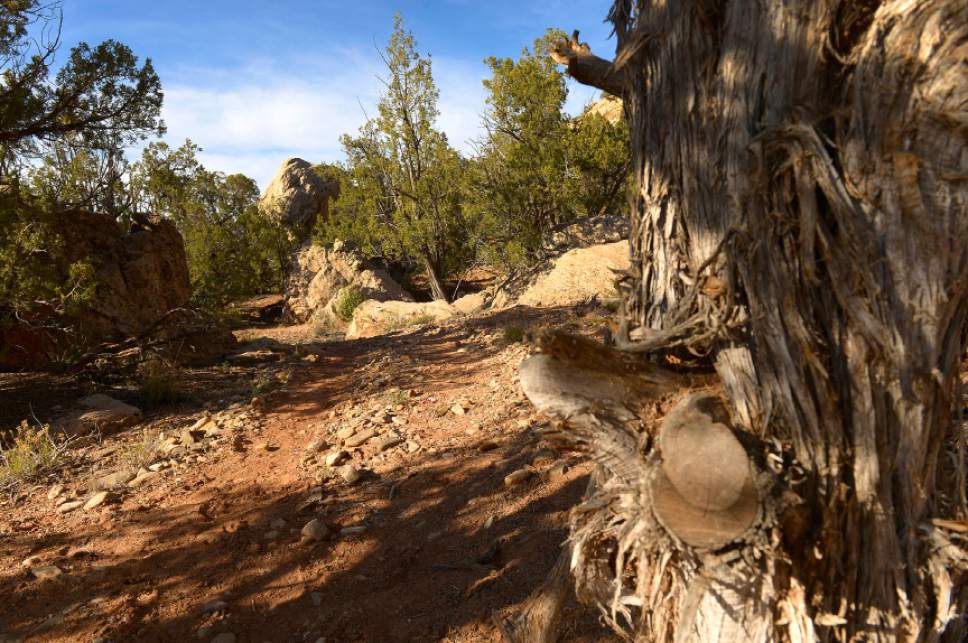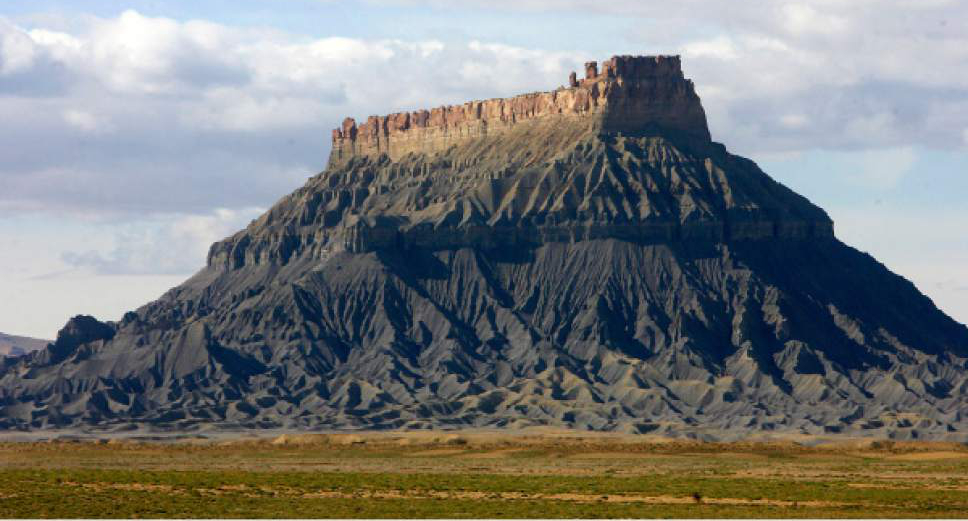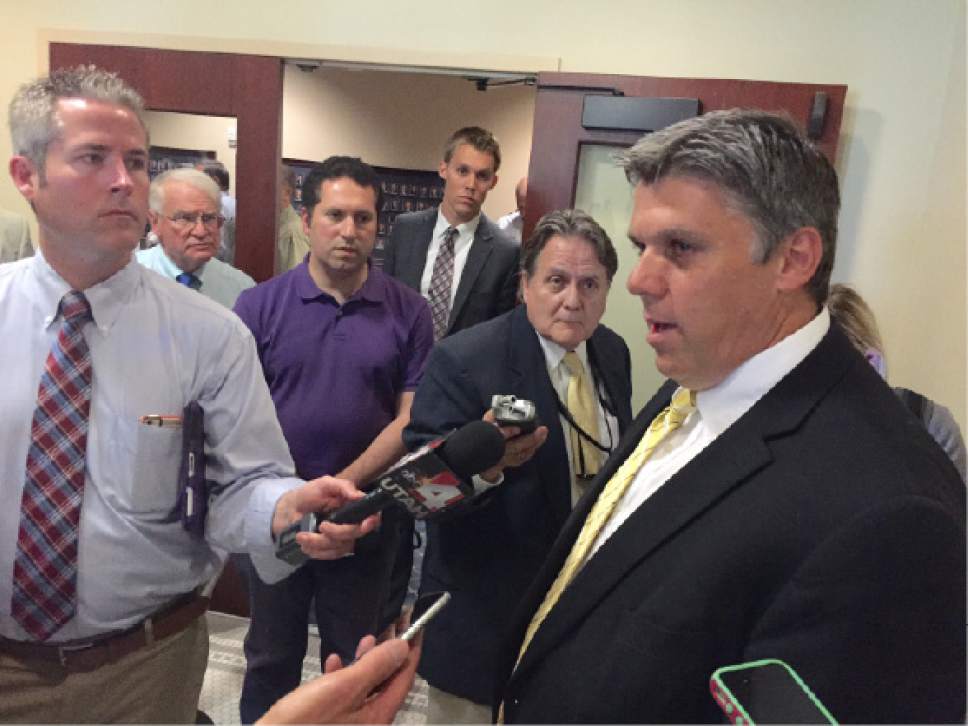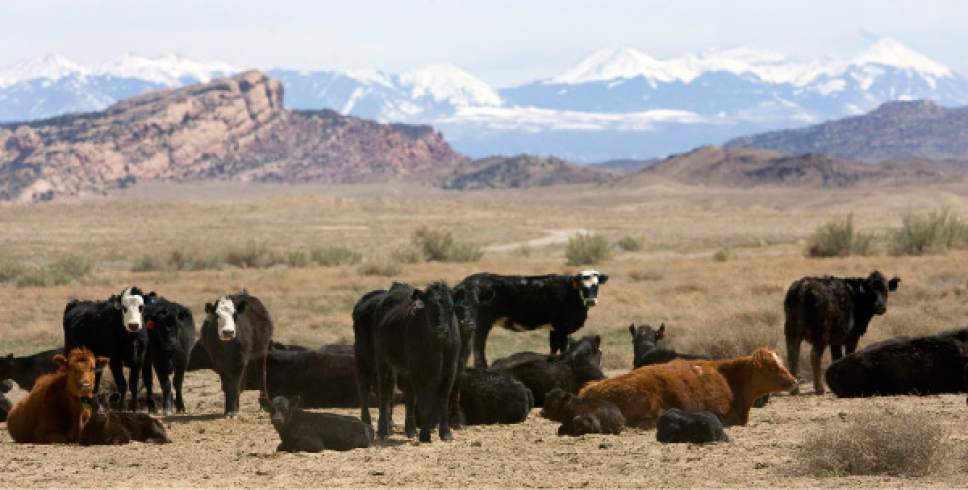This is an archived article that was published on sltrib.com in 2016, and information in the article may be outdated. It is provided only for personal research purposes and may not be reprinted.
Utah budget leaders on Wednesday approved setting aside $4.5 million as the first payment toward a lawsuit aimed at asserting state ownership of tens of millions of acres of federal land within Utah's borders.
Another $250,000 was earmarked to go toward a group created by rural county commissioners that could bolster the legal defense of San Juan County Commissioner Phil Lyman.
The lawsuit money is being set aside in case Attorney General Sean Reyes decides to file the public-lands lawsuit that has been years in the making. The $4.5 million carved out now marks the first time funds are actually being earmarked for such a court fight.
''It will be there so if the attorney general does weigh in on it, we don't have to come back into special session and appropriate it,'' said Senate President Wayne Niederhauser, R-Sandy. "It's in anticipation of the possibility of that happening."
Utah Republican legislators have been stirring a new Sagebrush Rebellion for years, arguing that Utah is entitled to ownership of vast federal land in the state's borders and pushing to sue the federal government demanding Congress turn over more than 30 million federal acres.
A law firm hired by the Commission for the Stewardship of Public Lands reported back in December that the state had a feasible claim and reported that it would cost an estimated $14 million to see the litigation to the end.
House Speaker Greg Hughes, R-Draper, said he envisions the money paying the cost of hiring a law firm and developing a plan for litigation.
"We're moving forward," said Hughes. "We want to put that structure together. … I think it's just putting parts in place."
The Davillier Law Group of New Orleans has been given permission by the commission to draft a complaint, at a projected cost of $3 million, that could be filed in court if Reyes and Gov. Gary Herbert decide to proceed.
Sen. Jim Dabakis, D-Salt Lake City, who has complained that Davillier attorneys have repeatedly denied to give Democrats information about the weaknesses of the potential litigation, called the set-aside "despicable" and "a sad day."
"Look. This is fire, ready, aim. This is greased up. To pretend like this isn't already set to go is just to ignore the reality," said Dabakis. "Now the entire Legislature is forced to decide on whether we should put money in a lawsuit, and we have been purposefully denied access to the full range of information that the taxpayers paid for."
The commission paid the law firm and lobbyists $640,000 in state funds for an analysis of a potential lawsuit.
The $4.5 million now tucked into the budget would be put into a new restricted account that would be used to fund the public-lands lawsuit, provided HB28, the bill creating the account, is passed by the Legislature.
The fund could also hold money from private donations to pay for the potential lawsuit.
In addition, budget language released Wednesday evening steers $250,000 to the Rural Utah Alliance, a non-profit committed to rural issues — including, potentially, the legal defense of Lyman, the county commissioner convicted of leading an illegal ATV protest through Recapture Canyon, which had been closed by the Bureau of Land Management to protect American Indian artifacts.
Lyman was sentenced by a federal judge in December to 10 days in jail and three years probation.
In addition, the attorney general's office has confirmed that Lyman is the subject of an ongoing state criminal investigation. The investigation stems from allegations that he voted to give property tax breaks to clients of his accounting firm — allegations that Lyman has denied.
The registered agent for the Rural Utah Alliance is Lyman's attorney, Peter Stirba, and the directors are Beaver County Commissioner Mark Whitney and Garfield County Commissioner Leland Pollock.
In June, an attempt to provide taxpayer dollars for Lyman's defense through the Constitution Defense Council was rejected, but several public officials stepped forward with donations. Gov. Gary Herbert pledged $10,000.
At a committee hearing last month, Dabakis asked Stirba if the money the Rural Utah Alliance was requesting was intended for Lyman's defense.
"That is going to be a decision that is going to have to be made by the board of [the alliance]," said Stirba.
Stirba said, more generally, the money would be used to help county commissioners get legal advice and strategy on how do deal with public-lands issues faced in rural counties.
"Every day when we get up and look ourselves in the mirror, we used to say there's a big bull's-eye on us, and now it's on our back as well," Whitney told the budget subcommittee. "It's not a matter of if, it's a matter of when more of us are charged with some sort of felony for standing up and protecting the health and safety and welfare of our county."
Twitter: @RobertGehrke









